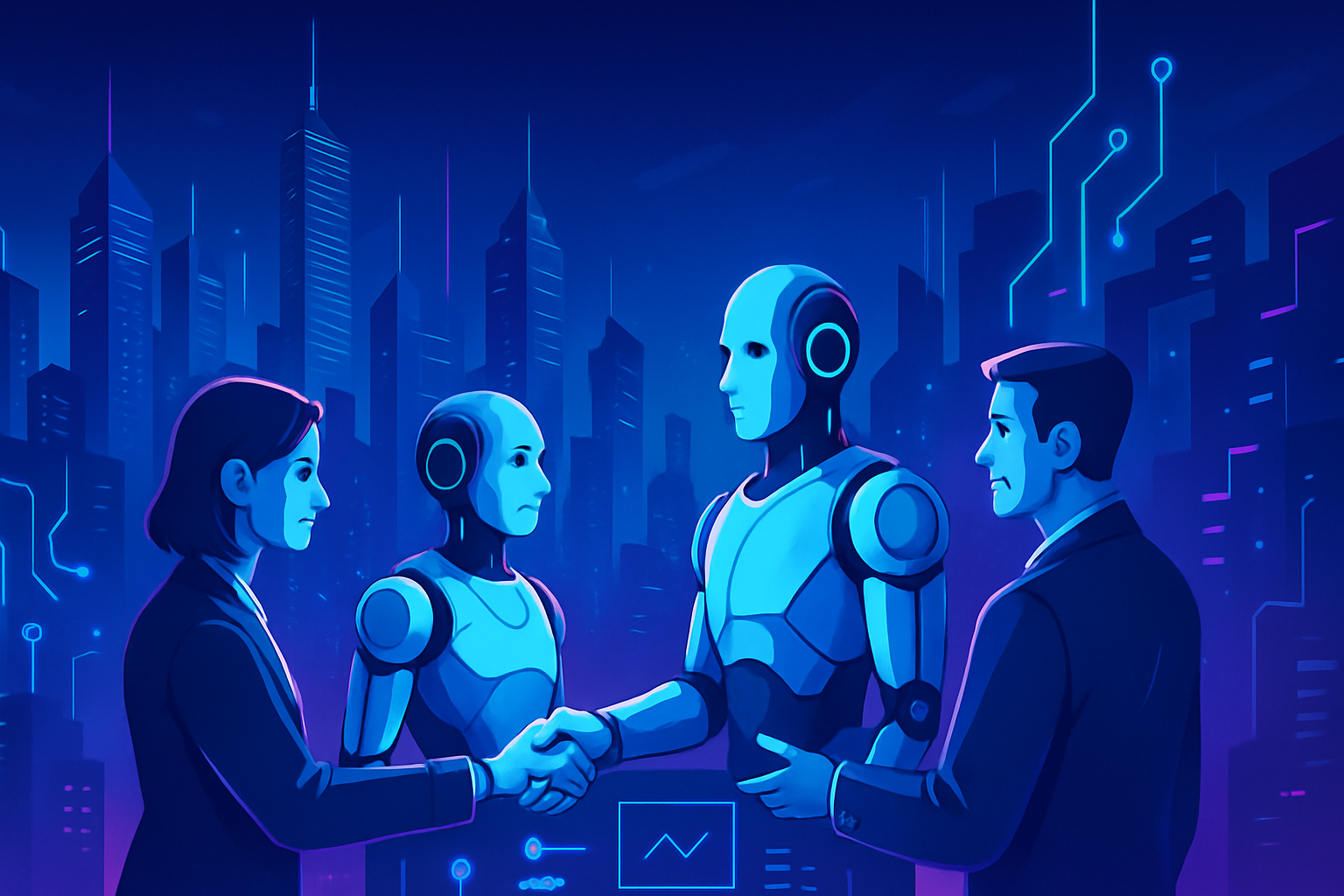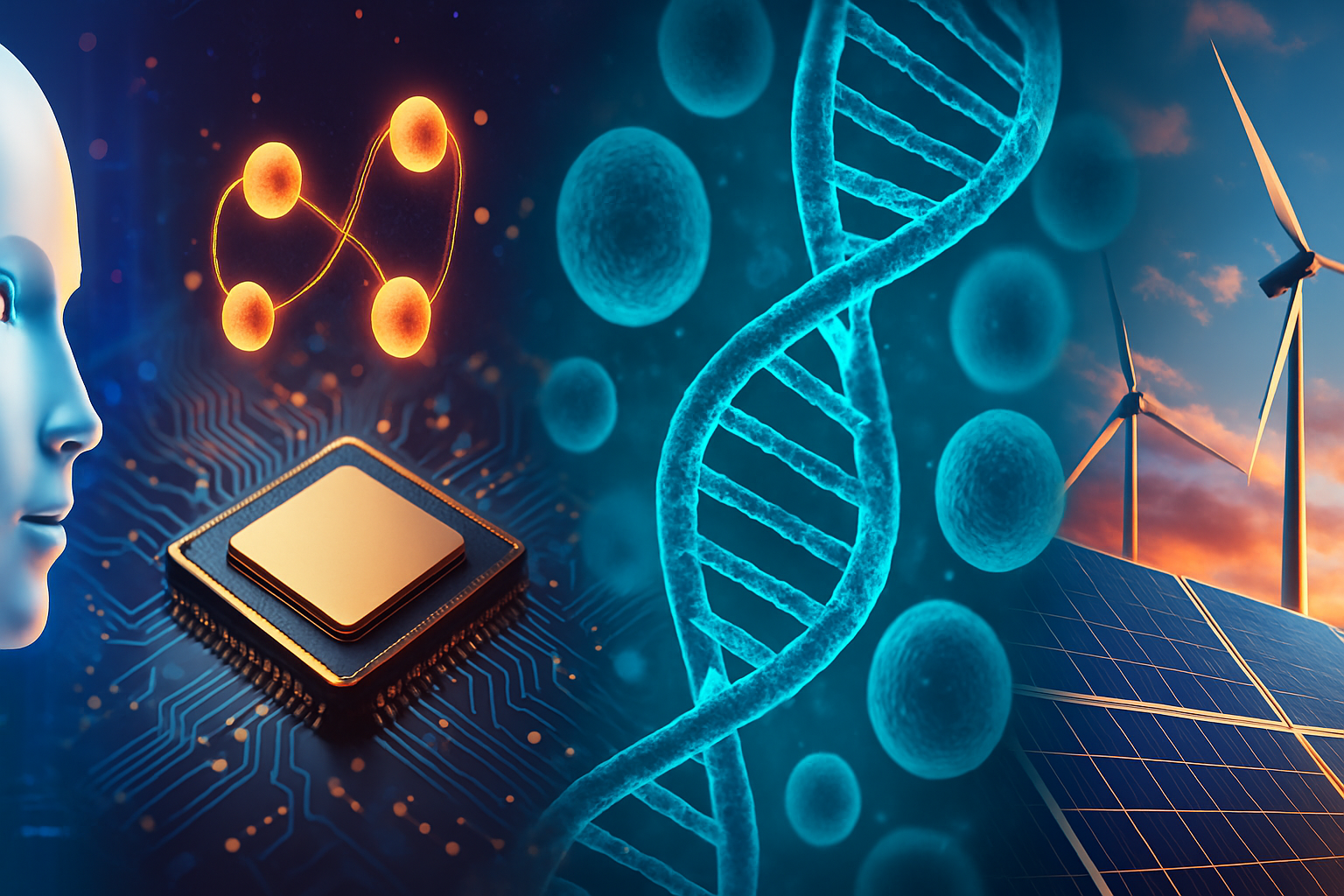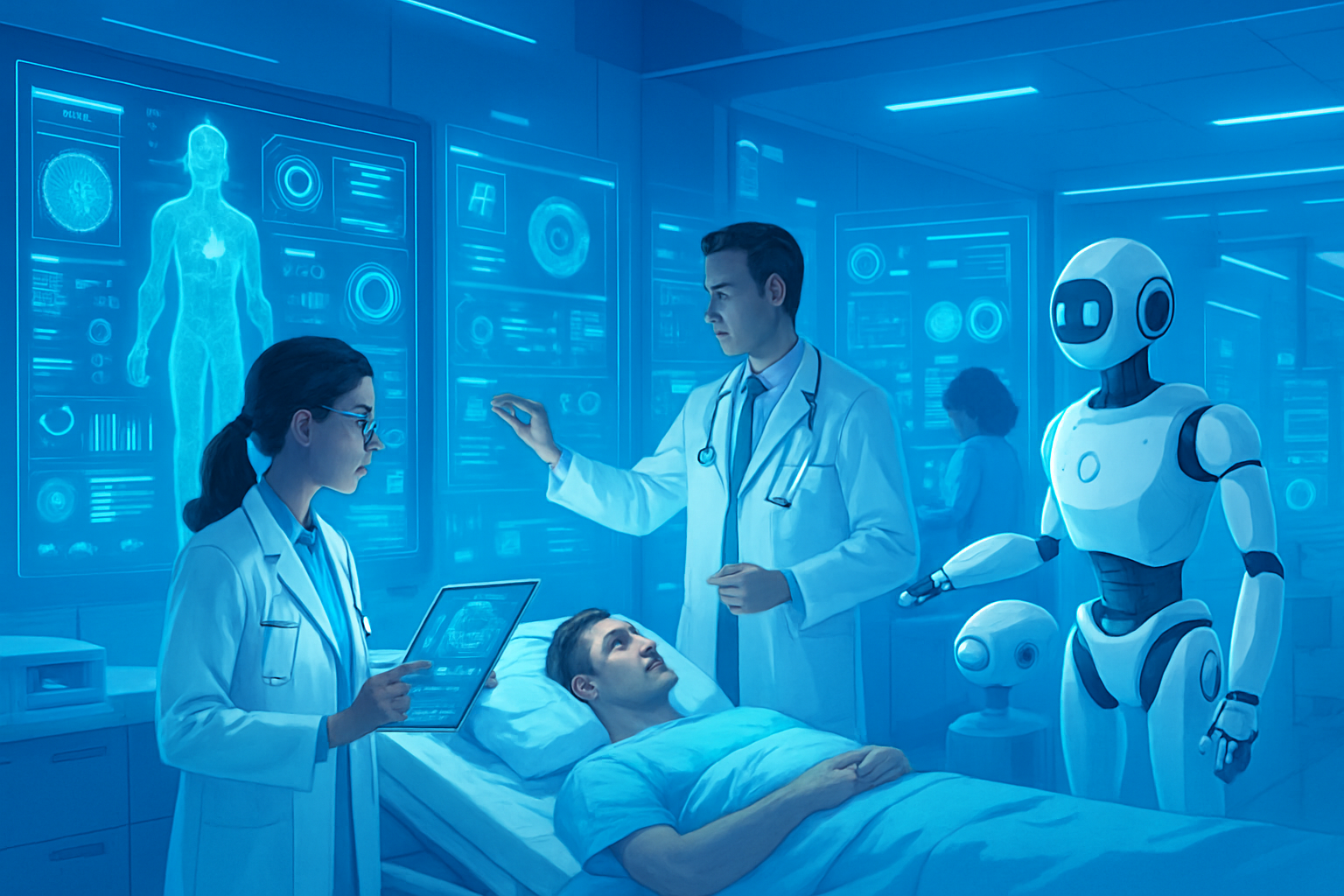AI Revolution: How Artificial Intelligence is Shaping Our Future
The AI revolution is here, fundamentally changing the landscape of industries and everyday life. Artificial Intelligence (AI) is transforming how we interact, work, and think, with profound implications that extend far beyond simple automation. This blog delves into the various ways AI is shaping our future, creating opportunities and challenges that we must navigate in the coming years.
The Evolution of Artificial Intelligence
The journey of artificial intelligence has been marked by significant milestones, ranging from early theoretical foundations to contemporary applications that permeate our daily lives. Starting from Alan Turing’s early work in the 1950s, AI has evolved through various phases, from rule-based systems to machine learning algorithms that learn from data.
Today, techniques like deep learning and natural language processing create AI systems capable of performing complex tasks. They not only mimic human capabilities but also enhance them, pushing the boundaries of what’s possible in technology. This evolution of AI enhances productivity in sectors such as finance, healthcare, and education, making operations more efficient than ever before.
The Transformative Impact on Industries
AI’s impact spans across various industries, reshaping their operations, workflows, and outcome-driven approaches. In the healthcare sector, AI aids in diagnosing diseases faster and more accurately than traditional methods. Tools leveraging AI can analyze medical images and data to support clinical decisions, thereby significantly improving patient outcomes.
Similarly, in finance, AI algorithms allow for risk assessment and fraud detection, making transactions safer and more efficient. By analyzing transaction patterns, AI can flag anomalies in real-time, offering a level of fraud prevention previously unattainable. This transformation in industries signifies a shift towards a future where AI acts as a complementary force to human intelligence.
The manufacturing sector also witnesses AI’s capabilities through automation and predictive maintenance. Smart factories employing AI technologies streamline production processes, reduce downtime, and enhance quality control. As a result, businesses can operate with greater flexibility, responding swiftly to market changes while maintaining high standards.
Everyday Life Enhanced by AI
Artificial Intelligence has seamlessly integrated itself into our daily routines, enhancing how we communicate, shop, and even relax. From smart assistants like Siri and Alexa to personalized recommendations on platforms like Netflix and Spotify, AI algorithms tailor experiences to individual preferences. These advancements not only enrich user experiences but also foster a deeper connection between technology and human behavior.
Moreover, AI’s role in decision-making processes extends to entitlement services, such as smart home systems that optimize energy usage and security. People can remotely control lighting, heating, and even monitor their properties through AI-powered solutions. Consequently, AI contributes to unparalleled convenience in managing day-to-day tasks, allowing individuals to focus more on what they love.
In education, AI applications create adaptive learning platforms that cater to students’ unique learning styles. By analyzing engagement levels and performance metrics, AI helps improve comprehension and retention of knowledge, significantly enhancing the learning experience. This transformation in education ensures that the future workforce is equipped with the skills necessary to thrive in a rapidly evolving job market.
Ethical Considerations in AI Development
As AI continues to shape our future, it also raises ethical questions that warrant our attention. Issues related to bias in algorithms, privacy concerns, and job displacement due to automation require careful consideration. Algorithms trained on biased datasets can perpetuate stereotypes and inequality, affecting marginalized communities disproportionately.
Privacy concerns also arise as AI systems often require vast amounts of data to function effectively. The collection and use of personal data must be managed transparently and ethically, maintaining a balance between technological advancement and individual rights. Ethical AI development involves not just the creators but also policymakers and stakeholders who can guide the technology towards a responsible future.
Furthermore, the potential for job displacement introduces societal challenges. While AI creates new job opportunities, it also threatens traditional job roles, especially in sectors heavily reliant on manual labor. Preparing the workforce for this transition is crucial through reskilling and upskilling initiatives that equip individuals with relevant skills in an AI-driven economy.
Preparing for an AI-Driven Future
To navigate the AI revolution successfully, it is essential to foster a culture of innovation and adaptability in organizations. Embracing continuous learning and flexibility allows individuals and businesses to stay ahead of the curve. Continuous education and professional development can empower employees to work alongside AI tools rather than compete against them, ensuring a symbiotic relationship.
Governments also play a vital role in establishing frameworks that facilitate ethical AI development while promoting innovation. Collaboration between public and private sectors can lead to the establishment of regulations that balance technology advancements with societal implications. Building public trust in AI technologies through transparency and accountability is paramount to fostering acceptance in our daily lives.
Investing in research and development for AI technologies can enhance a country’s competitive advantage on a global scale. Nations that lead in AI advancements will likely emerge as key players in shaping the future economy, emphasizing the importance of strategic investment in this frontier of technology.
The Future Landscape of Artificial Intelligence
Looking ahead, the AI revolution promises exciting possibilities across diverse landscapes. As the technology matures, we can anticipate breakthroughs in fields such as quantum computing, where AI algorithms will become exponentially more powerful, enabling solutions to previously unsolvable problems.
The future may also entail greater integration of AI and human intelligence, leading to unprecedented collaborations. Imagine employing AI to tackle climate change or global health issues, providing innovative solutions that enhance our collective capabilities. As we harness AI’s potential, the synergy between humans and machines could pave the way for a more sustainable and equitable world.
However, navigating this new era requires a proactive approach to addressing challenges. Policymakers, technologists, and society as a whole need to collaboratively explore ethical AI development, data privacy, and workforce transformation. By doing so, we can reshape our future in a manner that maximizes benefits while minimizing risks associated with rapid AI advancements.
Frequently Asked Questions (FAQs)
1. What is the AI revolution?
The AI revolution refers to the rapid advancement and integration of artificial intelligence technologies into various aspects of life and industry, fundamentally changing how we work, communicate, and solve problems.
2. How is AI impacting the healthcare industry?
AI is improving healthcare by enhancing diagnostics, personalized treatment plans, and operational efficiency through automation, ultimately leading to better patient outcomes and reduced costs.
3. What ethical concerns surround AI development?
Key ethical concerns include algorithmic bias, data privacy issues, job displacement, and the need for transparency in AI systems to ensure they do not perpetuate inequality or harm vulnerable populations.
4. How can we prepare for an AI-driven future?
Preparation involves continuous learning, reskilling and upskilling the workforce, promoting public awareness about AI impacts, and encouraging collaboration between governments and industries to establish ethical frameworks.
5. What role will AI play in the future job market?
AI is likely to create new job opportunities while displacing some traditional roles. The future job market will require adaptability and the ability to work alongside AI technologies effectively.




